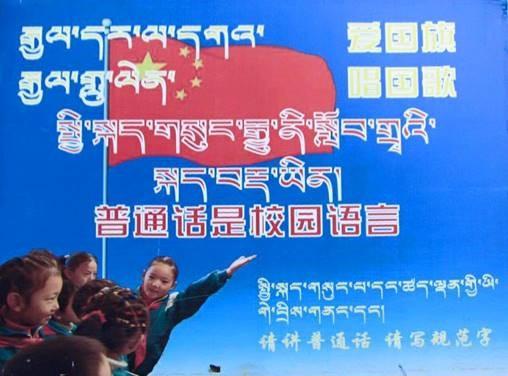By Choekyi Lhamo
DHARAMSHALA, MAR 7: Human Rights Watch’s (HRW’s) recent report on China’s ‘bilingual education’ policy confirms the ongoing threat for the Tibetan language and resources in the Tibet Autonomous Region (TAR), reports the Indian Express. It has been noted that while China, ensuring that the Tibetan language be taught in schools, it has side-lined the Tibetan language by making Chinese the primary language of use.
HRW’s 91-page report on Thursday pinpoints the shift of bureaucratic language from the time TAR’s government issued decrees that bilingual meant both Chinese and Tibetan were to be given “equal weight” in 2002. By 2017, the whole TAR was carrying out ‘bilingual education’ but the report shows that it has systematically failed in practice. The rights group maintained that the policy upholds Chinese as the main medium of instruction with only one class dedicated to Tibetan.
The rising risk of endangering Tibetan language among the next generation of Tibetans seems evident in the face of such a report, analysts say. “The promotion of Putonghua (Mandarin Chinese) among Tibetan communities is really problematic and has had a really profound impact on their identity, their language practices, and their ability to practice their culture,” said Gerald Roche, a senior research fellow at La Trobe University in Australia. In 2018, China sentenced Tashi Wangchuk, a Tibetan language advocate to five years’ prison time on the charges of “inciting separatism”. These switches to Chinese-medium instruction have led to protests against the Chinese government.
“Many of the Tibetans we talk to tell us they are indeed keen to ensure that their children speak Chinese… but not at the cost of Tibetan-language education,” said Sophie Richardson, China director at Human Rights Watch. “The idea of truly bilingual education is great and desirable. But that’s not what’s really on offer.” Since the official language of Mandarin is in use for government job positions, better economic opportunities, and higher education, Tibetans risk forgoing their mother tongue in order to maintain a reasonable and decent lifestyle.










